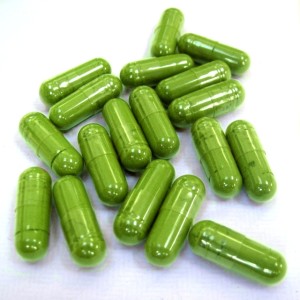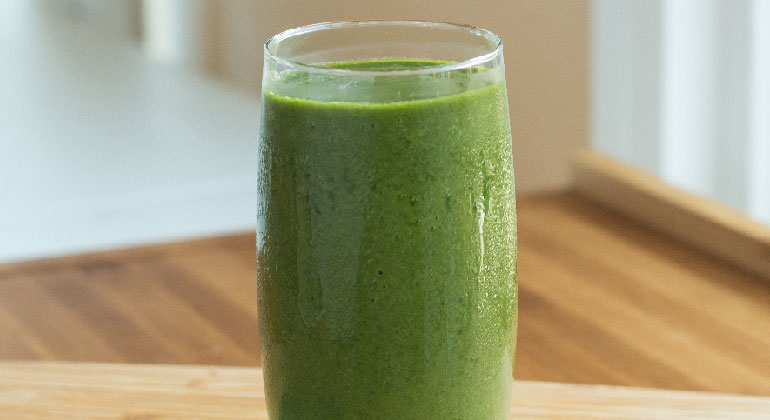
Short cuts are great for getting home quicker, but not for nourishing your body. When it comes to nutrition, nothing beats the quality of whole, plant-based foods.
Roughly one in five Americans takes an herbal supplement and it is estimated that Americans will spend about $21 billion on the industry in 2015 alone. Even with this sum of money being spent, there are no reports of this correlating to an increase in healthier people. Supplements can definitely play a role in helping people who have deficiencies, but the best way to get your daily-recommended intake of vitamins and minerals is still through whole foods.
 Multivitamins contain a synthetic, isolated form of vitamins that are not naturally found in foods. Foods are complex and contain components that work symbiotically to give our bodies what they need to heal, repair, and fight off disease and illness. For example, lycopene, a red carotenoid found in tomatoes and watermelon, was recently discovered to be an effective anti-carcinogenic, but until recently was not found in supplements.
Multivitamins contain a synthetic, isolated form of vitamins that are not naturally found in foods. Foods are complex and contain components that work symbiotically to give our bodies what they need to heal, repair, and fight off disease and illness. For example, lycopene, a red carotenoid found in tomatoes and watermelon, was recently discovered to be an effective anti-carcinogenic, but until recently was not found in supplements.
Additionally, it isn’t necessarily relevant how much of a vitamin you take. In fact, taking too much of a supplement can build up in your system and potentially cause toxicity. What is important is how much of that vitamin is bioavailable to your body – this means what fraction of the vitamin actually metabolizes in your system to be delivered to the parts of your body that can utilize it.
Fat-soluble vitamins, like vitamin D, can be stored but for the majority of vitamins that are water-soluble, after a certain amount is dissolved into your bloodstream, the remainder is flushed out. Nutritionists recommend looking for a vitamin that have percentages lower than the daily recommended intake and getting the majority from real food.
The reasons for why it’s important to get as much vitamin and mineral intake from the food we consume all comes down to science:
More nutrition – Instead of just getting vitamin C from a pill, a food high in vitamin C like an orange contains more than 170 different phytochemicals and 60 flavonoids, like beta carotene, calcium, B-6, and magnesium. These components have anti-inflammatory properties and antioxidant effects, which if you’re taking vitamin C to prevent a cold and boost your immune system, is extremely important!
Fiber – Dietary fiber can be soluble (dissolves in water) or insoluble (doesn’t dissolve in water). Fiber, the part of plants your body can’t absorb or digest, passes through your digestive track and helps with bowel movements and health by lowering cholesterol, controlling blood sugar levels, and helping you to achieve a healthy weight.
Synergy – Ever heard that your body needs vitamin D to help your bones absorb calcium? Food synergy is when vitamins and minerals work together in your body, like vitamin C enhancing your body’s ability to absorb iron, and indeed there are plants that naturally contain both vitamin C and iron, like pumpkin, broccoli, and spinach.
When are supplements useful? Let’s say for example, you live in an area that is cold with little sunlight year-round. Your doctor runs some tests and recommends you take vitamin D because your levels are lower than recommended. This helps temporarily until you can get your vitamin D levels to the right count, and then you stop taking them, but promise yourself you’ll get more time out in the sun.
Moringa supplement capsules exist on the market, sold in 400 mg capsules at a recommended serving of two capsules a day (or, 800 mg/day). Compare this to a serving of Pure Moringa Powder from Kuli Kuli at 10 grams a serving, more than twelve times what you’ll get in the capsule form. One benefit of moringa powder over other dietary supplements is that moringa is a whole food, not an isolated, synthetic supplement. Moringa doesn’t just have B-2, B-3, iron, and calcium; it also has protein and fiber.
The best part? By integrating moringa powder with food, in a delicious smoothie bowl or veggie stir-fry, the nutrients in moringa will be better absorbed, leaving you with a healthy, happy body.
SOURCES:
http://www.fda.gov/AboutFDA/Transparency/Basics/ucm194357.htm
http://articles.mercola.com/sites/articles/archive/2005/01/19/whole-food-supplements.aspx
http://miracletrees.org/howto-eat-moringa.html
http://www.medicalnewstoday.com/articles/272782.php
http://biology.stackexchange.com/questions/2629/what-does-the-term-bioavailability-mean
http://www.mayoclinic.org/healthy-lifestyle/nutrition-and-healthy-eating/in-depth/fiber/art-20043983
http://www.webmd.com/vitamins-and-supplements/nutrition-vitamins-11/help-vitamin-supplement?page=2
http://www.webmd.com/food-recipes/food-synergy-nutrients-that-work-better-together
http://www.cbsnews.com/news/what-your-multivitamin-will-and-wont-do-for-you/







